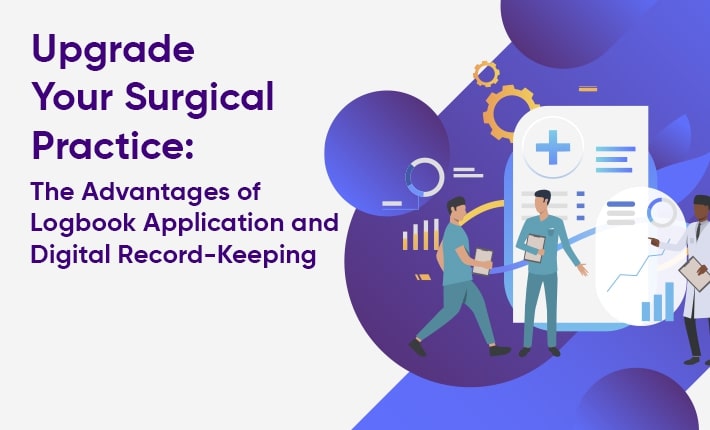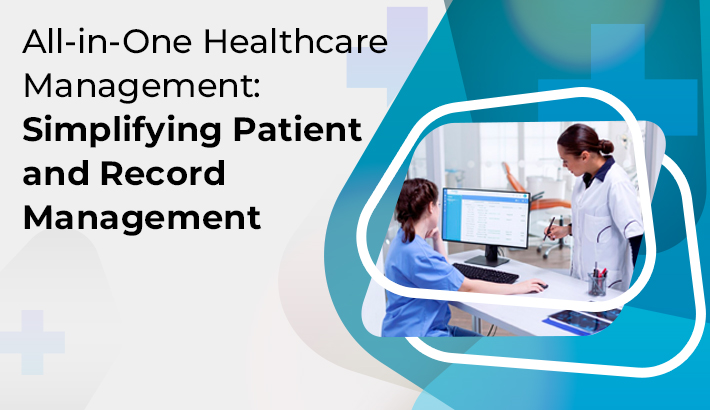In the fast-paced world of surgical practice, efficient management and accurate record-keeping are crucial for providing high-quality patient care. Traditional paper-based logbooks and record-keeping methods have their limitations, leading to inefficiencies, errors, and difficulties in accessing critical information when needed. However, with the advent of logbook applications and digital record-keeping, surgeons and medical professionals can upgrade their practice to streamline workflows, improve accuracy, and enhance overall efficiency.
Introduction
Surgical practice management encompasses various aspects, including patient care, documentation, scheduling, and collaboration. Keeping track of surgical cases, procedures, and patient outcomes is not only important for individual surgeons but also plays a significant role in research, training, and quality improvement initiatives. In this article, we will explore the advantages of using logbook applications and digital record-keeping systems in surgical practice.
The Importance of Surgical Practice Management
Effective surgical practice management is vital for delivering optimal patient care. It involves maintaining accurate records, tracking surgical cases, managing schedules, and facilitating collaboration among healthcare professionals. With the increasing complexity of surgical procedures and the growing volume of patient data, manual methods of logbook and record-keeping are becoming inadequate and inefficient.
Challenges in Traditional Logbook and Record-Keeping
Traditional paper-based logbooks and record-keeping systems present several challenges for surgical practice. First, they are time-consuming and require manual entry, leading to potential errors and inconsistencies. Additionally, retrieving specific information from a vast collection of paper records can be tedious and time-consuming. Moreover, paper logbooks are prone to loss, damage, or misplacement, risking the loss of critical data. Lastly, sharing and collaborating on paper records can be challenging, especially in multi-disciplinary healthcare settings.
The Advantages of Logbook Applications
- Efficiency and Time Savings: Logbook applications automate the process of data entry, eliminating the need for manual transcription. Surgeons can quickly record surgical cases, procedures, and patient information using intuitive interfaces, saving time and reducing the risk of errors.
- Enhanced Accuracy and Organization: Digital logbook applications ensure consistent and accurate data capture. Surgeons can categorize cases, add relevant details, and maintain a comprehensive overview of their surgical practice. This organized approach allows for easier retrieval of specific cases and data analysis.
- Accessibility and Portability: With logbook applications, surgical records are easily accessible from any device with an internet connection. Surgeons can review patient data, update records, and access information on the go, even outside the hospital premises. This portability enhances workflow efficiency and facilitates remote consultations.
- Data Analysis and Insights: Logbook applications offer robust data analysis capabilities, enabling surgeons to gain insights into their surgical practice. By analyzing surgical outcomes, trends, and complications, surgeons can identify areas for improvement, enhance patient care, and contribute to research initiatives.
Key Features to Look for in a Logbook Application
To make the most of logbook applications, surgeons should consider key features that enhance usability and functionality. These features include:
- User-Friendly Interface: An intuitive and user-friendly interface ensures ease of use and encourages adoption among surgeons and medical professionals.
- Integration with Electronic Health Records (EHR): Seamless integration with existing electronic health records systems allows for a comprehensive patient overview and reduces the need for duplicate data entry.
- Customization and Personalization: Logbook applications should allow surgeons to customize fields, templates, and reports according to their specific requirements, ensuring flexibility and adaptability.
- Data Security and Privacy: Robust data security measures, including encryption and secure cloud storage, are crucial to protect patient information and comply with privacy regulations.
- Collaboration and Communication Tools: Logbook applications should facilitate collaboration among surgeons, enabling the sharing of cases, insights, and best practices within a secure platform.
Successful Implementation and Adoption Strategies
Implementing logbook applications requires careful planning and engagement with stakeholders. Key strategies for successful implementation include:
- Training and Support: Offering comprehensive training and ongoing support to surgeons and staff members ensures a smooth transition to the new system and encourages active usage.
- Stakeholder Engagement: Involving surgeons, administrators, and IT personnel in the decision-making process and addressing their concerns fosters buy-in and acceptance of the logbook application.
- Seamless Integration with Existing Workflows: Integrating the logbook application seamlessly into existing surgical workflows reduces disruptions and promotes adoption among surgeons and medical professionals.
- Regular Updates and Improvements: Continuous updates and improvements based on user feedback ensure the logbook application remains up-to-date, user-friendly, and aligned with evolving surgical practice needs.
Real-Life Case Studies
Numerous surgical departments and practices have successfully implemented logbook applications, leading to improved efficiency and enhanced patient care. For example, a large teaching hospital integrated a logbook application into their surgical residency program, enabling residents to easily track and analyze their surgical cases, monitor progress, and receive feedback from attending surgeons. This implementation resulted in better surgical training, increased collaboration, and improved documentation.
Future Trends in Surgical Practice Management
As technology continues to advance, surgical practice management will witness further advancements. Emerging trends in this field include the integration of artificial intelligence (AI) and machine learning algorithms for predictive analytics, virtual reality (VR) for surgical training, and enhanced interoperability among different healthcare systems. These innovations will further streamline workflows, improve patient outcomes, and revolutionize surgical practice management.
Conclusion
Upgrading your surgical practice with a logbook application and digital record-keeping system offers significant advantages in terms of efficiency, accuracy, accessibility, and data analysis. By automating the process, enhancing collaboration, and providing valuable insights, logbook applications empower surgeons to deliver optimal patient care while simplifying administrative tasks. Embracing these technological advancements will undoubtedly transform surgical practice management and pave the way for a more efficient and data-driven future.
FAQs
Q1: Are logbook applications compatible with different surgical specialties?
A: Yes, logbook applications can be customized to accommodate various surgical specialties and their specific requirements.
Q2: Can logbook applications replace traditional paper logbooks entirely?
A: Logbook applications offer a digital alternative to paper logbooks, but the transition depends on individual preferences and institutional policies.
Q3: How secure are logbook applications in terms of patient data protection?
A: Logbook applications employ robust data security measures to protect patient information, including encryption and compliance with privacy regulations.
Q4: Can logbook applications be accessed offline?
A: Some logbook applications offer offline functionality, allowing surgeons to record data even without an internet connection. The data is synchronized once a connection is established.
Q5: What benefits do logbook applications offer for research and academic purposes?
A: Logbook applications provide a comprehensive overview of surgical cases, outcomes, and trends, facilitating research, quality improvement initiatives, and academic contributions




